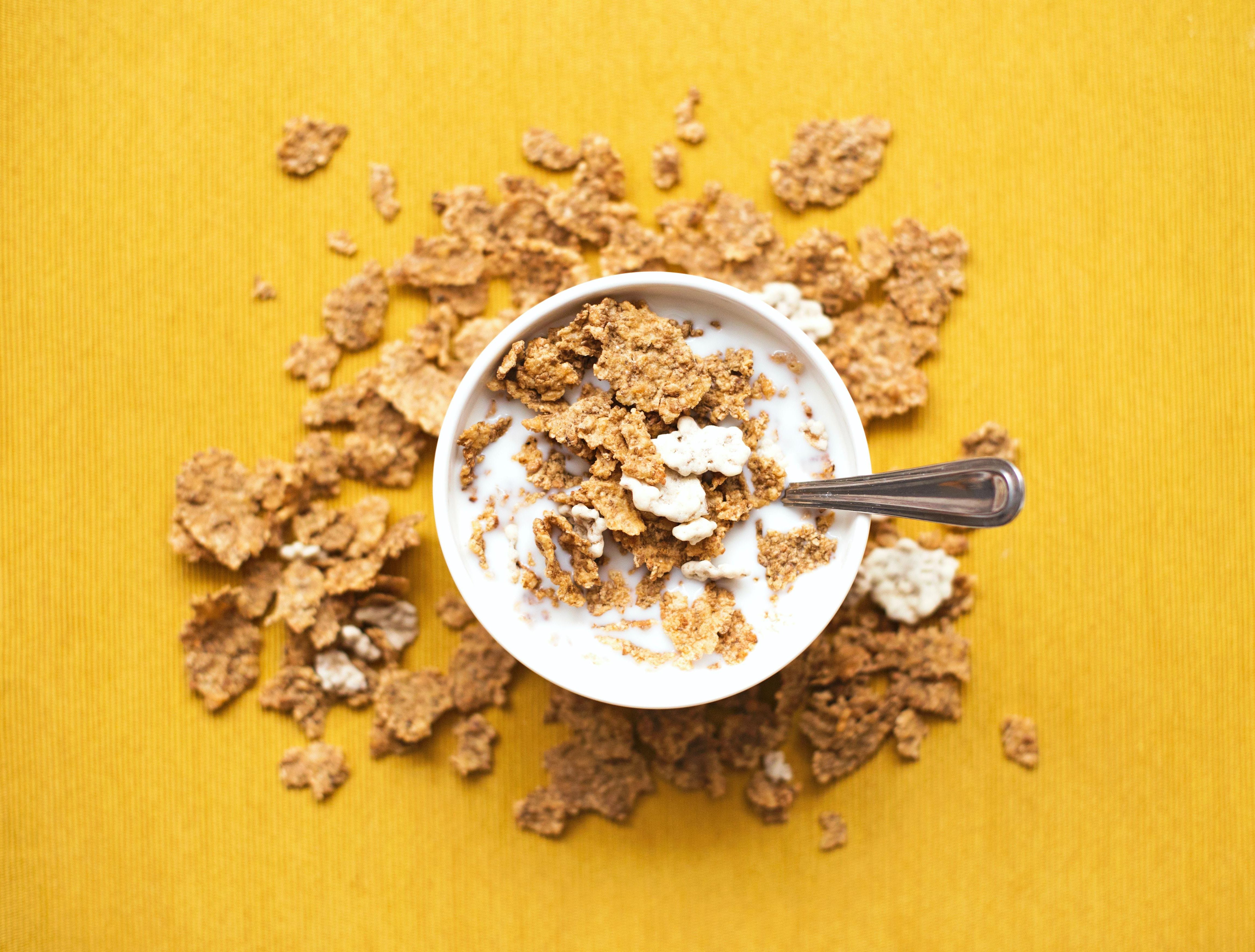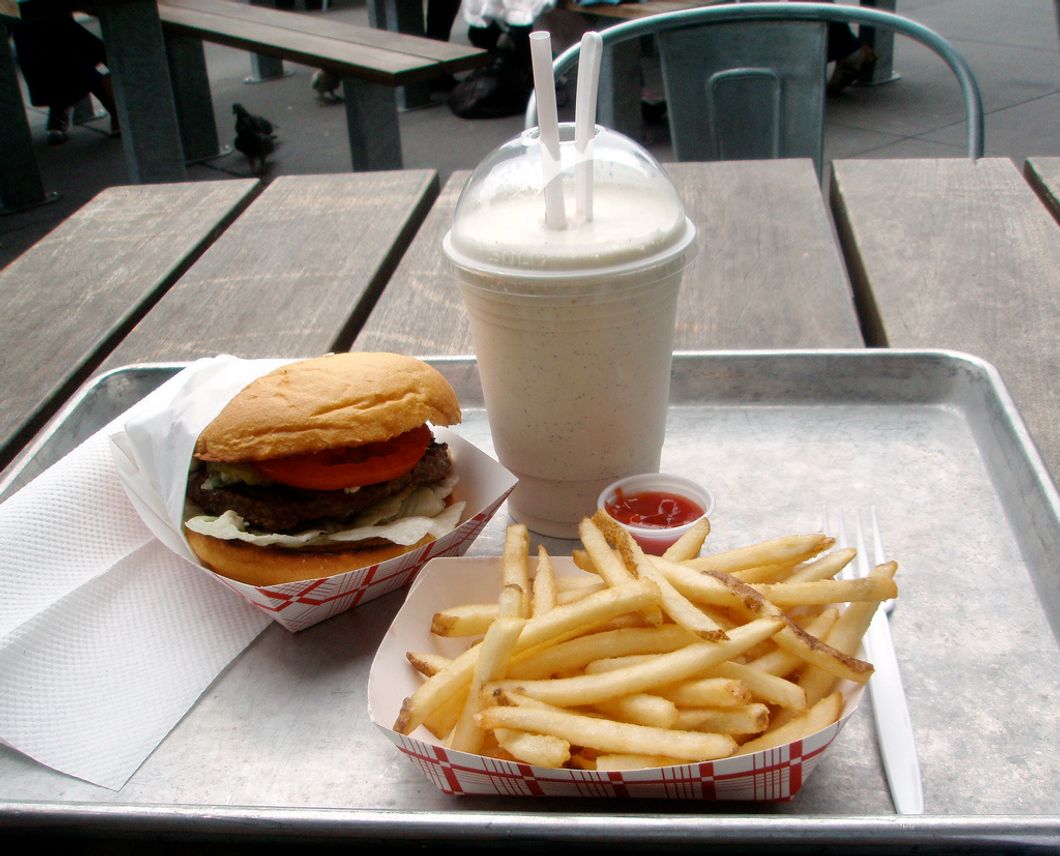Our society is obsessed with restriction - eat as little, weigh as little, take up less space. As if being smaller makes us more powerful, who on earth started that sick joke?
There is a very important thing to understand about the toll of restriction. The deprivation your mind experiences irrespective of your individual eating behaviors will harm the natural bodily processes you would otherwise do without hesitation. Restriction, mental or physical, plays tricks on the brain - convincing it to be in a starvation mode and making massive alterations to protect itself.
For example, if you're still eating several times a day but you're never eating certain things (in an effort to lose weight and avoid certain foods) the body can get depleted of several nutrients that it desperately needs. Not only does that physically change the chemicals in our bodies, but also sends signals to our brain and the thought patterns it creates (especially in relation to food.) I did this for three years in pursuit for "health" and found out much later I was doing just the opposite. My version of "health" meant stick thin and starving - just the opposite of what a holistically healthy person would truly be. I thought my body was meant to be small, and I think in this world a lot of people feel the same way. Everyone is always trying to change how they look. Obviously, there are expectations, but biology is biology and maintaining that modification will no doubt be a full-time job.
I never understood that I was cutting myself off from all my natural hunger cues or that every time my body asked for something and I didn't respond adequately, I grew further and further away from having the body and mind connection that I was so passionate to receive. I never understood that you could eat 3 meals AND snack throughout the day without blowing up like a balloon. Media had explicitly informed me of the opposite - "the less you eat the better, it will be worth it."
I used to spend hours a day focused on food. In hindsight, it makes a lot of sense - I was malnourished. My brain was doing its best to show me that, regardless of a few physical hunger cues, I was starving. At the time I never put two and two together so I barely even questioned my time-consuming nature surrounding food and cooking. I would scroll through Pinterest late at night when I couldn't sleep and study recipes for the foods I wanted to eat but never did. I would obsess over recipes, what they called for that I would "never in a million years have consumed myself." I looked at the lifestyles of people who ate like I did, Whole30 and proud to convince me that I was doing right. I looked for motivation when I felt depleted. I thought about eating or not eating when I woke up, between classes, during lectures, walking home, when I watched t.v., and before I went to bed. Whenever I did eat I thought about working out or if I gained weight. I talked about food and I asked questions about food and I imagined eating things that I restricted. It was almost as if I thought thinking about food would make me feel fed. It didn't.
By this time I was severally undernourished. Tracking about 300-400 calories a day in the winter of 2017. It was extremely low, It was dangerous. I had no real hunger - my stomach would not rumble. I only knew I needed to eat when I felt faint, extremely weak or shaky and I had about 10 foods I was capable of consuming. These restrictive patterns told my body to not communicate its hunger after making it clear that I was not listening. Two weeks into treatment I had my first true hunger cue, it was 3 years after my disordered behavior had begun.
Allowing my body to be properly nourished eliminated thousands of thoughts, countless sleepless nights, hours of energy spent reviewing products, the daily battle of "to eat or not eat" and so much more. Simply put, I saved time. It was not necessary for me to fill my brain with constant thoughts of food because I was fueling my body with its nutrients instead.
The simplicity of that statement was unable to be registered when I was extremely sick.The intake therapist and doctor explained that way that eating disorders change the chemical nature of brains, responsible for altering wavelengths and inhibiting certain communication receptors. I was told that by May 2018 my brain was PHYSICALLY different from what it was in May 2016. It was thinking different ways, telling me different things, supporting my erratic behavior because it WAS different. That was the first thing that made any sense at all.
Allowing myself to honor cravings, eat a variety of foods, prepare full meals and fulfill satiety needs gave me the brain space for other things. As I began to recover in this way, I realized how much of my time, my interests and my life that I lost when I was so stuck on the food. Spending my time thinking about something that I never even acted on; the calories, fear of weight gain, obsession with ingredients and addiction to a "clean" lifestyle had deprived me of a life at all.
I remember having mental lists of all the things I wanted to do when I was struggling with disordered eating. Personal growth goals and creative ideas and social interests. Most none of them ever actually got done - I was too weak and too distracted to award my time towards anything else.
Now, the things I used to want to do have become more approachable. I have gone to meditation classes and studied other healing practices. I have taken workout classes with friends and spontaneously agreed to social outings. I was still able to prioritize school while also impressing mentors and applying to completive job opportunities. I have made cooking fun and interactive but also overcome controlling tendencies for eating out. Focusing instead on bonding with people over the joy of food.
When you allow yourself to recognize and answer your needs, when you feed your body properly when you take care of it so it can trust you, everything changes. When your brain is nourished, your life grows.
- How I Came To Be A Non-Diet and Intuitive Eating Dietitian ›
- Why I'm an Anti-Diet Dietitian—and What That REALLY Means ... ›
- Victoria Myers ›
- Nourishing Minds Nutrition ›
- Warning Signs and Symptoms | National Eating Disorders Association ›
- Avoidant Restrictive Food Intake Disorder (ARFID) | National Eating ... ›
- 10 foods to fuel your brain health ›
- Each Organ Has a Unique Metabolic Profile - Biochemistry - NCBI ... ›
- The Happy Brain by Dean Burnett review – the science of happiness ... ›

















